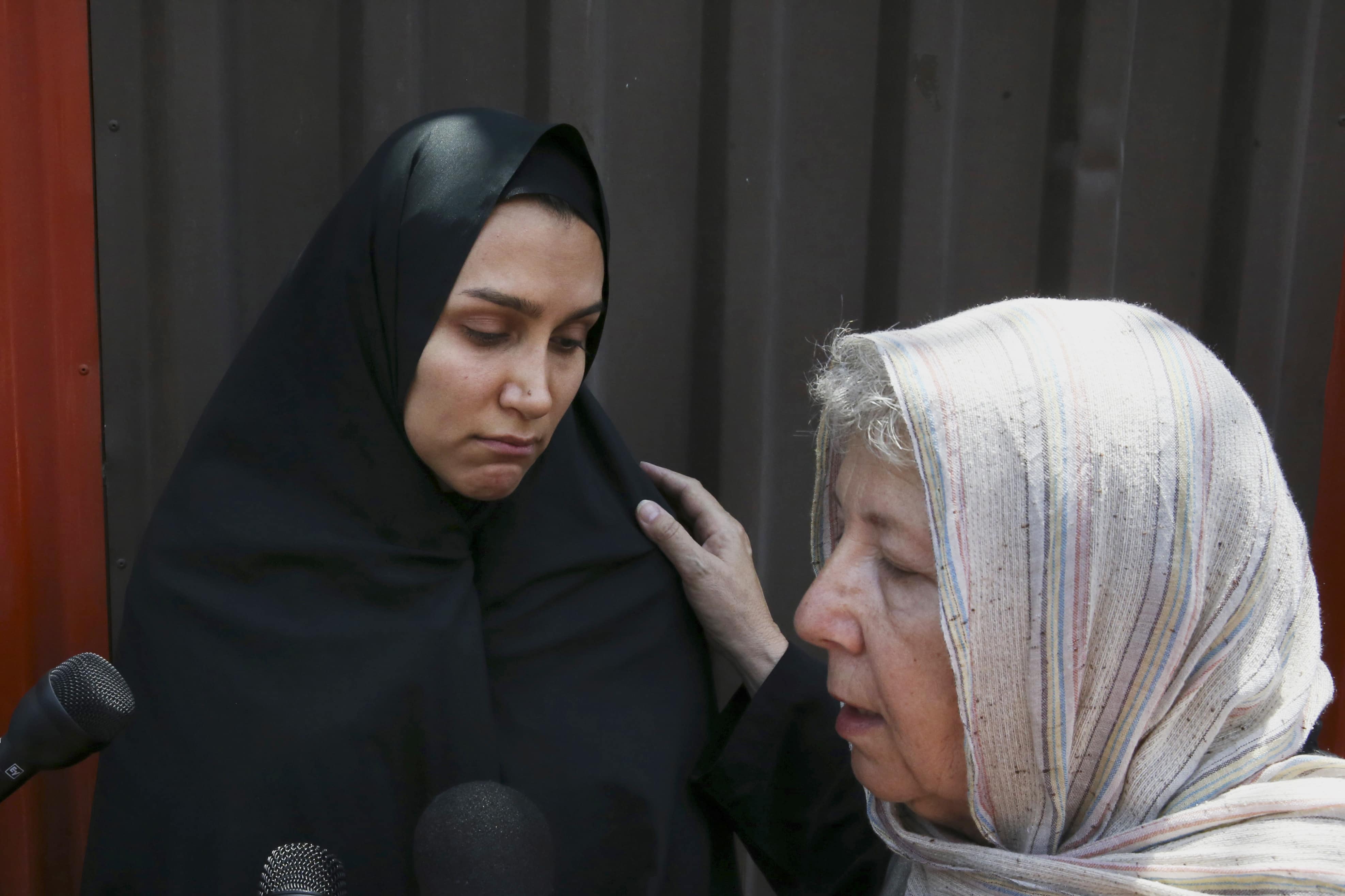Held in isolation in Tehran’s Evin prison, Rezaian, who has Iranian and American dual citizenship, has been living a nightmare for the past year just for doing his job as a reporter.
This statement was originally published on rsf.org on 21 July 2015.
Reporters Without Borders reiterates its call for the immediate and unconditional release of the Washington Post’s Tehran correspondent, Jason Rezaian, who was arrested exactly a year ago tomorrow.
Held in isolation in Tehran’s Evin prison, Rezaian has been living a nightmare for the past year just for doing his job as a reporter and because he was unlucky enough to have dual US and Iranian nationality at a time when the two countries were conducting tense negotiations about Iran’s nuclear programme.
Ever since his arrest on 22 July 2014, Reporters Without Borders has been denouncing the illegality of his detention and the many irregularities in the course of his trial, which is being held behind closed doors.
Detained in Section 2A of Evin prison, a section controlled by the Revolutionary Guards, Rezaian was subjected to mistreatment with the aim of extracting a confession for use at his trial.
In a statement issued in April, after the United States reached a tentative agreement with Iran on its nuclear programme, Rezaian’s brother, Ali, said: “Now that the framework agreement is in place, we call on the Iranian leadership to review the evidence their underlings claim to have against Jason.”
After being briefed by Rezaian’s lawyer, Leila Ahsan, about the charges, Ali Rezaian said that, according to Ahsan, the prosecution had no evidence to support the allegations of “activities against Iran’s security in collaboration with a foreign organization or government” and “anti-government propaganda.”
He also insisted that his brother never had any contacts with senior officials or other persons with access to classified documents.
“Jason has done nothing wrong,” his mother told reporters from Agence France-Presse and other news media waiting outside the Tehran court during the third hearing in his trial on 13 July. Voicing the hope that he would be released on bail, she added: “He is not a murderer, he is not a spy. This type of detention is hurting him.”
“We point out that Jason Rezaian was arrested and jailed with the aim of being used both in the all-out war among the various government factions and as a bargaining chip in diplomatic negotiations,” said Reza Moini, the head of the Reporters Without Borders Iran/Afghanistan desk.
“After the historic accord with western governments on its nuclear programme, Tehran must stop practicing this kind of arbitrary detention, which is tantamount to hostage-taking and constitutes a flagrant violation of international law and standards. We call for the immediate release of Rezaian and all the other journalists imprisoned in Iran.”
Background
Revolutionary Guards in plain clothes arrested Rezaian at his Tehran home on 22 July 2014 along with his wife – who was working for The National, a newspaper based in the United Arab Emirates – and two other US citizens.
Their apartment was searched and ransacked, and all computers and electronic devices were seized. The two other US citizens were released provisionally a month later. After payment of a large sum in bail, Rezaian’s wife was freed provisionally on 4 October pending trial.
Farsnews, a news agency linked to the Revolutionary Guards, reported on 12 April that Rezaian would be tried for “selling business and industrial information to the CIA.” Responding to the report the same day, Washington Post editor Martin Baron described the allegation as absurd and condemned the fact that Rezaian had been denied any legal advice for the past nine months.
Vatan-é Emrooz, an extremist daily that supports the Revolutionary Guards and former President Mahmoud Ahmadinejad, ran a front-page story on 18 April that was headlined “Unveiling Jason’s secrets.” It accused Rezaian of infiltrating the government and various institutions to uncover the methods used by Iran to circumvent international sanctions.
His lawyer, Leila Ahsan, gave Agence France-Presse the details of the charges after being allowed to see Rezaian on 20 April and said this meeting was their first since she took the case at the start of March.
Rezaian’s family in the United States has meanwhile been pressing the Obama administration to make his release a priority.
In a statement issued on 2 April, after the United States reached a tentative agreement with Iran on its nuclear industry, Rezaian’s brother, Ali, said: “Now that the framework agreement is in place, we call on the Iranian leadership to review the evidence their underlings claim to have against Jason.”
More than 400,000 people have so far signed a petition for Rezaian’s release that Reporters Without Borders has relayed.
Reporters Without Borders secretary-general Christophe Deloire joined a dozen well-known media figures, including Noam Chomsky, Anderson Cooper, Christiane Amanpour, Marty Baron and National Press Club president John Hughes, in writing to Iranian judicial system chief Sadegh Amoli Larijani requesting Rezaian’s immediate release.



